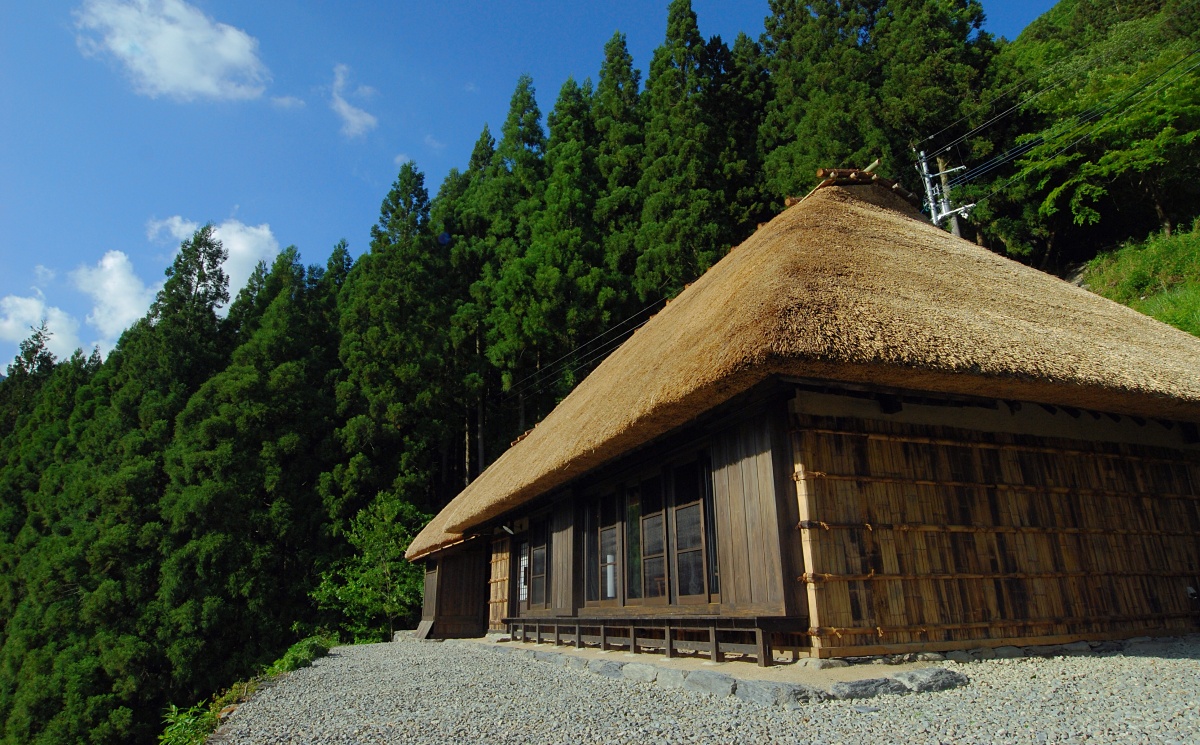Immersed in Farmhouse Culture
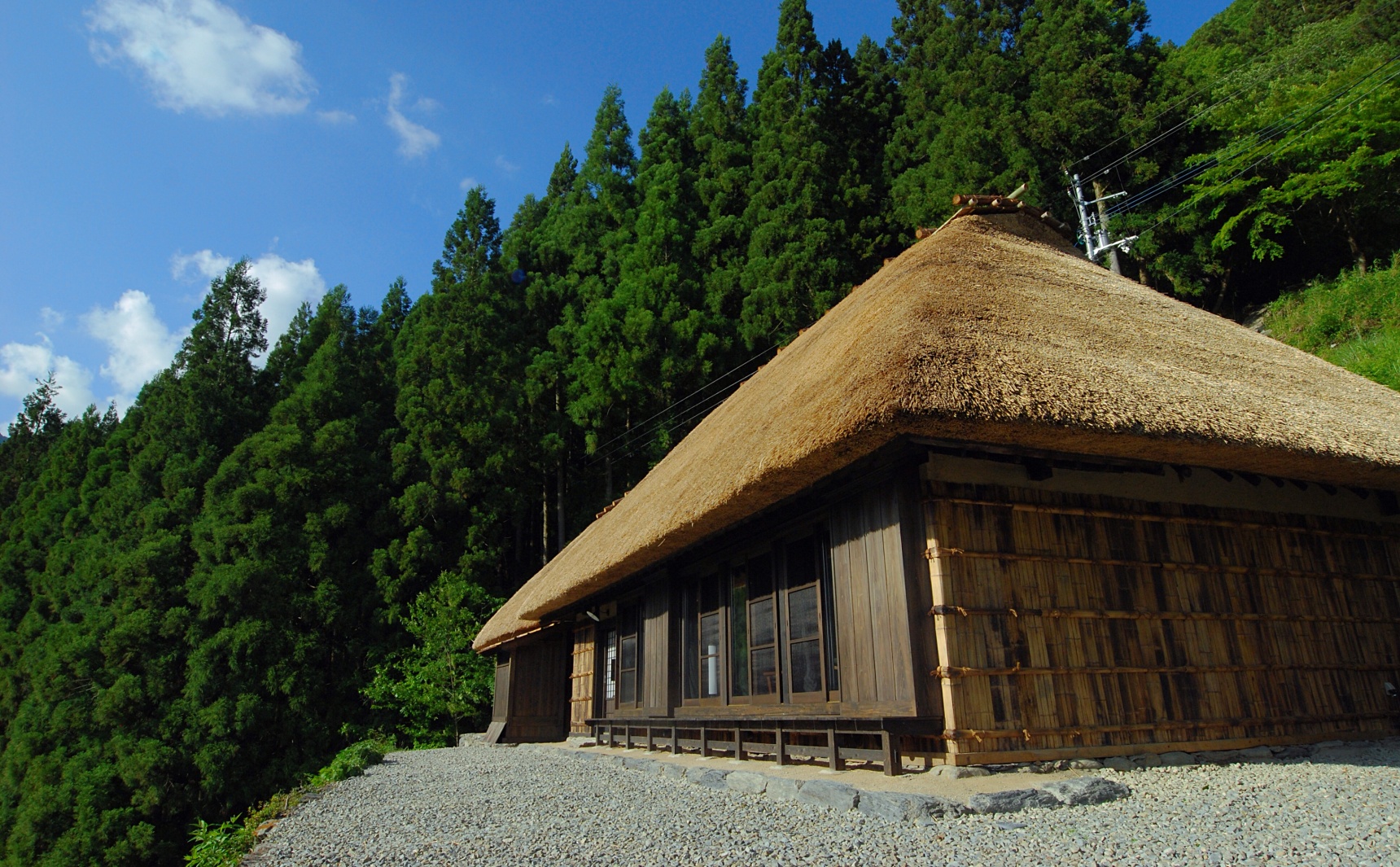
The farming village of Tono City in Iwate Prefecture has a population of just 28,000, and its name translates as “distant field.” There are no fast food restaurants or chain hotels here, and the people speak in a distinctive dialect. Tono is also known as a land of folklore, and has many old legends of monsters and men.
By Highlighting Japan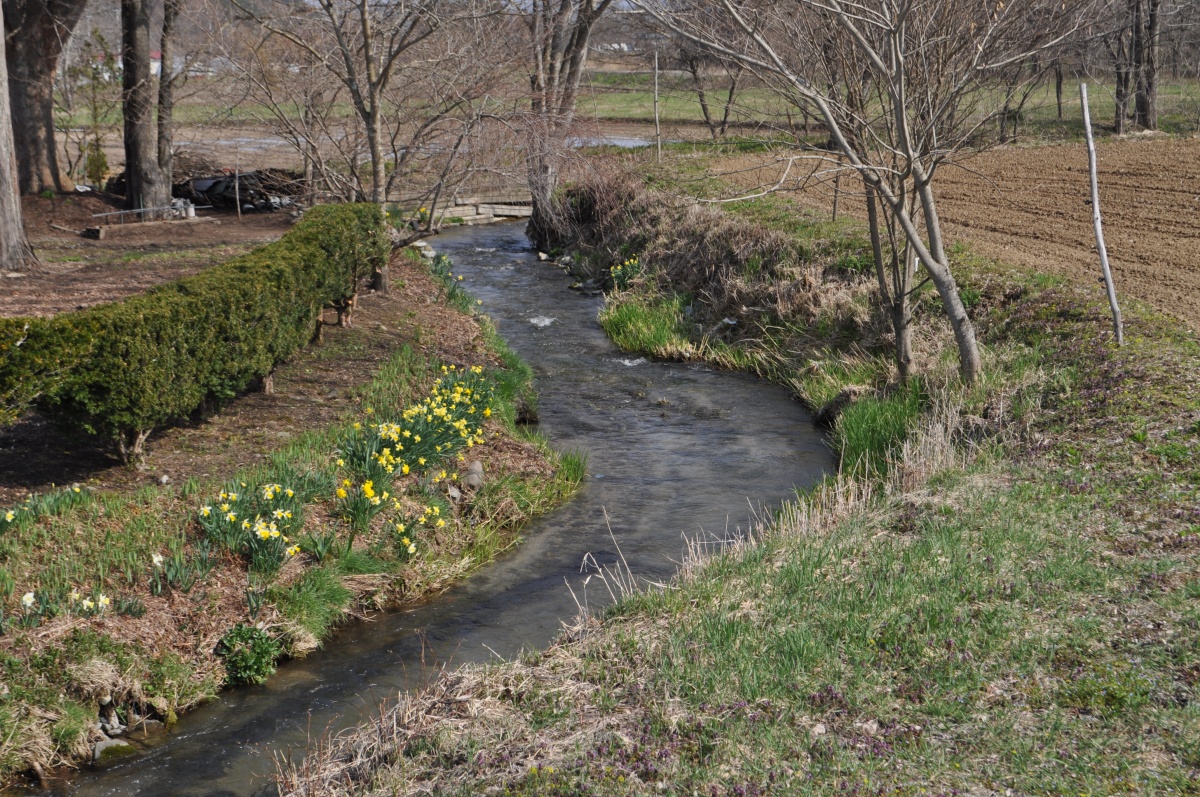
To bring in tourists, Tono is making use of the region’s defining features—agriculture, nature and local culture—in the form of farm village homestays. The path from Tono Station leads through fields and along a stream. The destination is a large farmhouse with a splendid tiled roof. Near the entrance are a wheelbarrow and hoe, as well as piled-up baskets and firewood. The owner of the farmhouse, Kikuko Kikuchi, calls out a welcome.
Tono is one of the places providing abundant hops to one of Japan’s major beer producers, and Kikuchi raises hops as well as peanuts and rice. Her large vegetable garden sprawls out on the opposite side of the house. Alpine leeks and butterbur sprouts are ripe for the picking in late April. Cutting vegetables and grilling fish together with Kikuchi in her kitchen for dinner are part of the homestay experience.
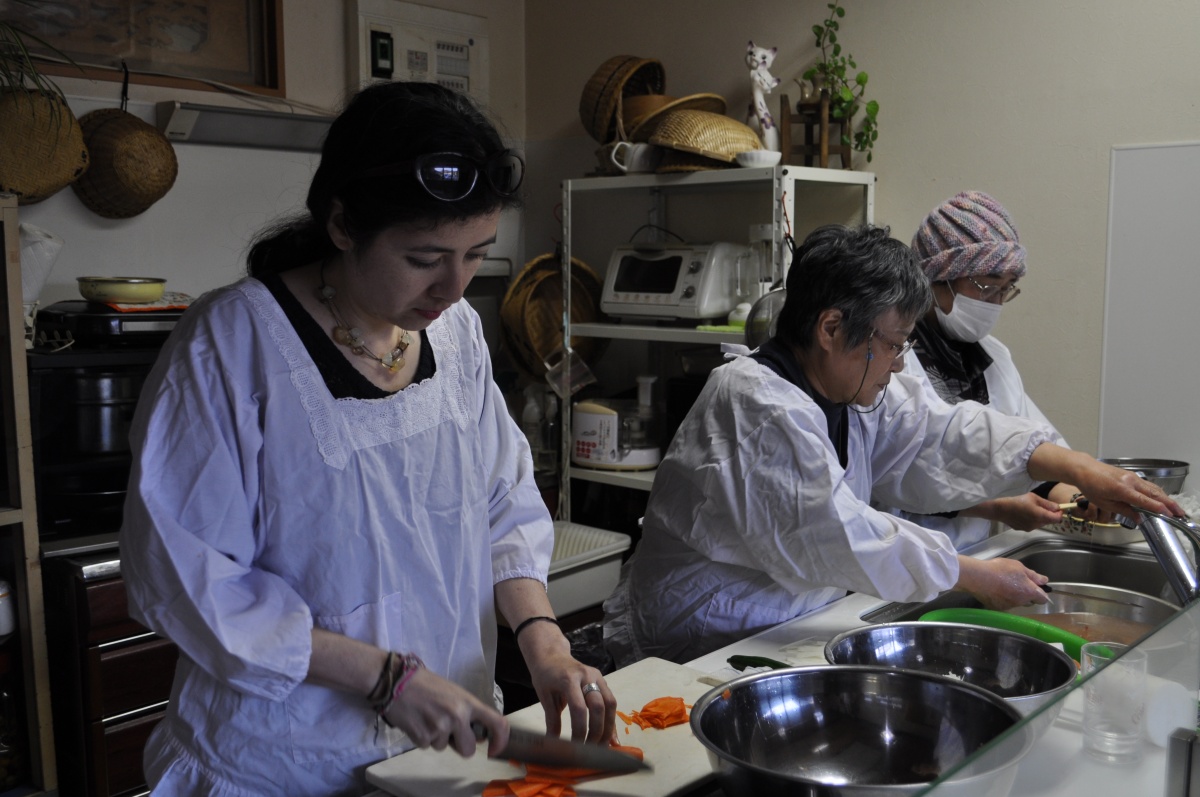
An NPO called Tono Natural Life Network runs this program, and currently has 140 farmhouses registered. Its president, Shinichi Kikuchi, hopes that the program will revitalize the region while protecting its traditional culture. Approximately 2,000 people visit through the Tono farm village homestay program each year, but he feels they can bring in even more.
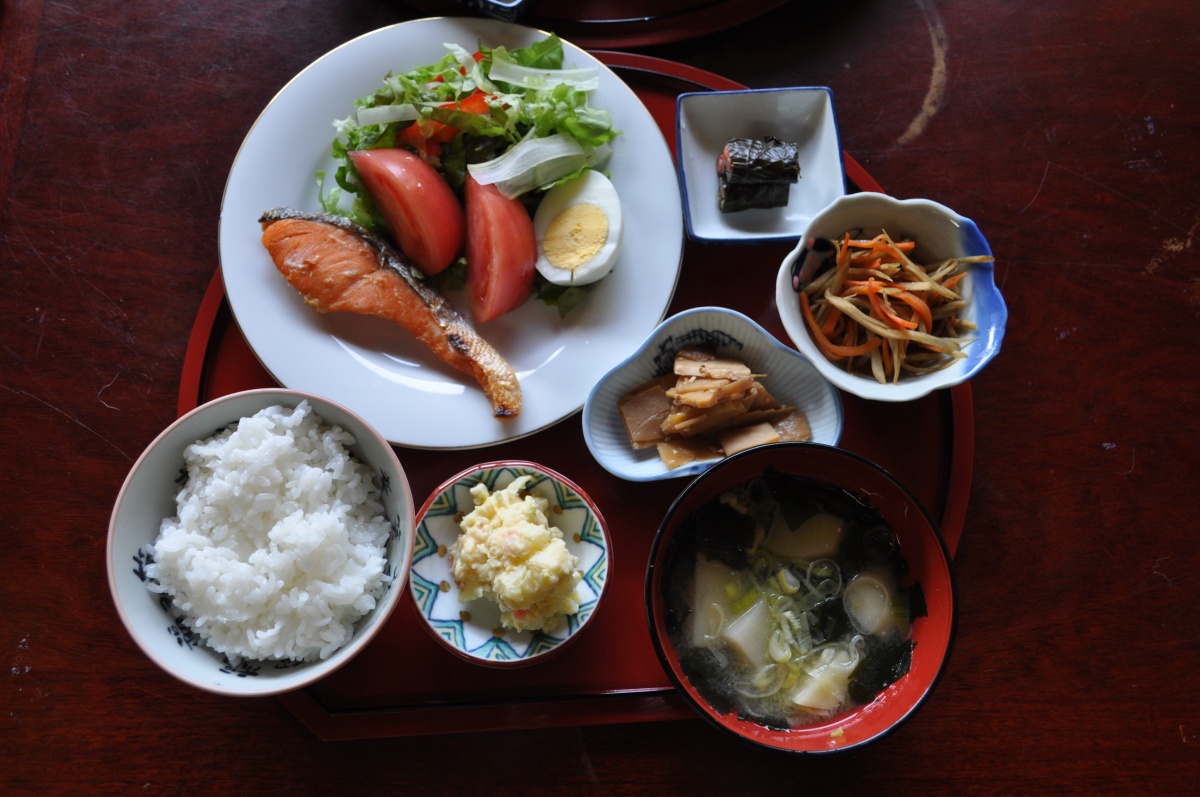
“Tono is the true Japan—the homeland of Japan,” Kikuchi says. “The Tono of old is still alive today. Participants in the program empathize with the Tono lifestyle, and this gives its residents greater pride in their homeland, protects their traditions, and spreads their culture to the world.”
Tono is not the only place in Japan where visitors can immerse themselves in farmhouse culture. As part of an initiative to welcome international visitors, the Minister of Agriculture, Forestry and Fisheries created SAVOR JAPAN, a service that recognizes certain areas and focuses on sharing information about the charms of farmhouse culture, along with the culinary and food culture experiences one can enjoy during the homestay program.
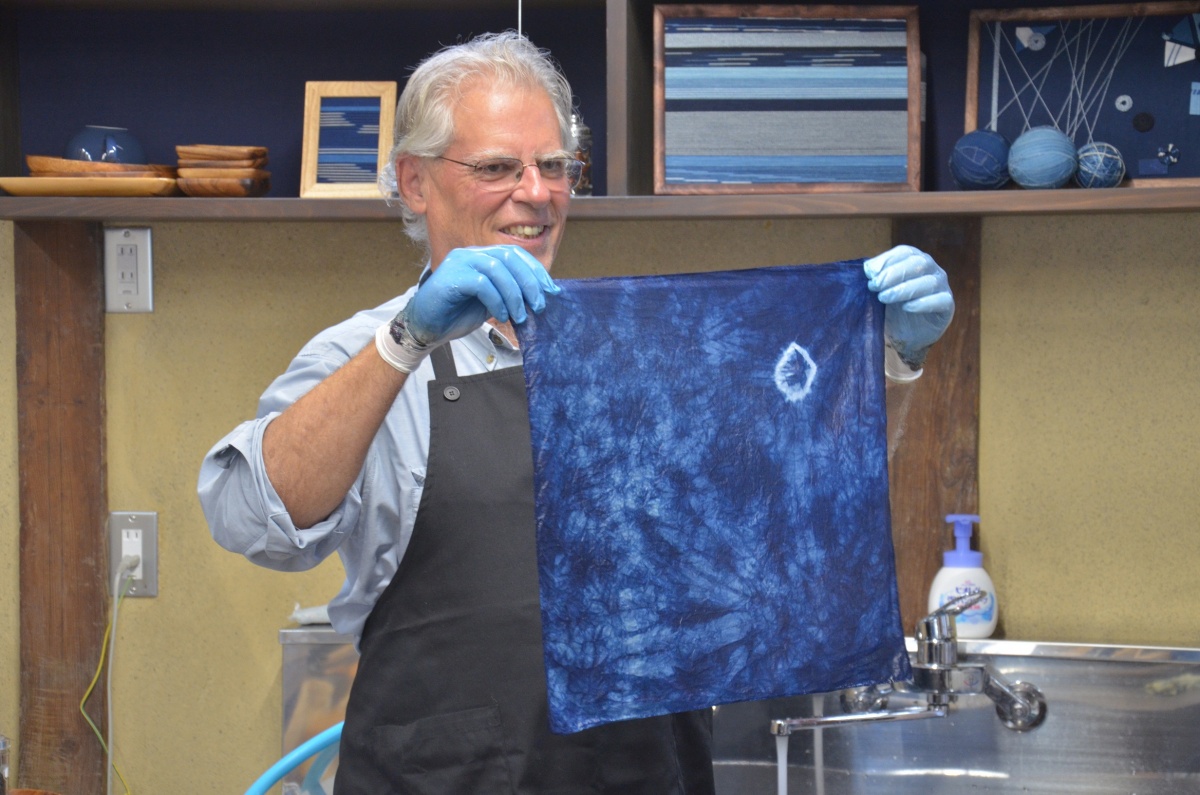
One of the 15 areas recognized for this within Japan is the Nishi-Awa region of Tokushima Prefecture. Here, on steep 40-degree slopes within the mountains, they use diverse agricultural methods passed down for four centuries to cultivate assorted grains like millet and buckwheat. These traditional farming methods have been registered as Globally Important Agricultural Heritage Systems by the Food and Agriculture Organization of the United Nations (FAO).
Participants in the homestay program to Nishi-Awa can not only stay in a century-old farmhouse, which has been beautifully renovated on the inside while maintaining its traditional appeal and atmosphere, but also enjoy cuisine made from locally grown vegetables and wild game from the surrounding mountains (like deer and boar) along with local residents.
This region also boasts a wealth of sightseeing attractions, including a magical sea of clouds generated by the unusual terrain and climate, a rafting experience in the Oboke and Koboke ravines and the townscape of Udatsu, which flourished during the Edo Period (1603-1867) thanks to indigo dyeing and has preserved its historical buildings and atmosphere.
Shinichi Kikuchi doesn’t believe that the inability of most farmers to speak English is a problem, since smartphones are making communication simple. Kikuko Kikuchi agrees. “Communication is highly valued in farm village homestays. Guests don’t simply sleep, eat and then say goodbye,” she says. “I can’t speak a word of English, but I have a heart.”
As proof of this, program participants who have seen the heartfelt hospitality of their hosts return to the farm village time and time again.


